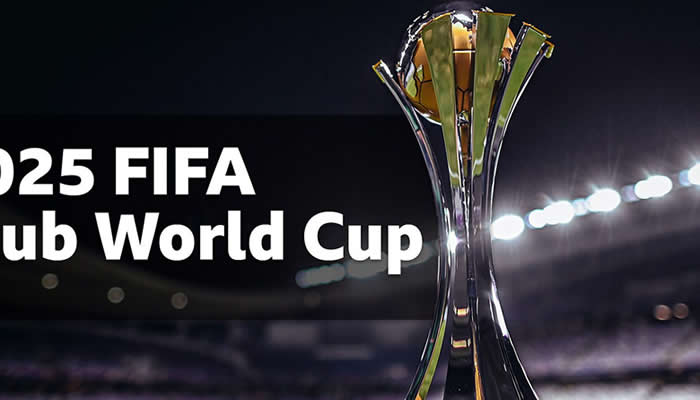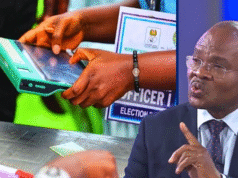The inaugural 32-team FIFA Club World Cup kicks off today across the United States, and while the spotlight will largely rest on global stars and European heavyweights, Nigeria quietly makes a strong showing on football’s grandest club stage with five full internationals and three heritage players scattered across four participating teams.
For the West African nation, whose senior national team continues to grapple with inconsistency, this tournament represents another proving ground, this time, through club glory rather than country call-ups.
Nigeria’s most recognisable name at the tournament is Zaidu Sanusi, the once-established Super Eagles left-back whose career has been recently interrupted by persistent injuries.
Sanusi, 28, has endured a torrid time with Porto over the past season, losing his starting berth after ACL tear kept him sidelined for 227 days between February and September 2024. That injury followed another muscle setback earlier in the season, costing him 48 more days out.
Across the 2024/25 campaign, he made only eight appearances totalling 266 minutes, a sharp contrast from the consistency that saw him become a national team mainstay after his 2020 debut.
Nonetheless, the Sokoto-born defender has been included in Porto’s squad for the Club World Cup, where they face Lionel Messi’s Inter Miami, Brazilian giants Palmeiras, and CAF representatives Al Ahly in Group A.
Porto’s opening clash comes against Palmeiras on June 15 at the MetLife Stadium, followed by matches against Inter Miami and Al Ahly on June 19 and 24, respectively. Sanusi’s inclusion may be symbolic, but in a tournament where defensive discipline will be crucial, Porto may yet turn to the Nigerian’s continental experience.
Over in Asia, the UAE’s most decorated side, Al Ain, have tripled Nigeria’s footprint in the tournament by naming three Nigerians in their final 33-man squad: forward Rilwanu Sarki, goalkeeper Hassan Muhammed, and midfielder Joshua Udoh.
While the latter two are untested youth prospects with no senior club minutes, 21-year-old Sarki is a relative unknown with growing potential. Transferred from Mahanaim FC in Nigeria ahead of the 2023/24 season, Sarki has managed two appearances across the Pro League and League Cup and scored his last goal in May 2024 during a league win over Al Wahda.
Though not a regular starter, Sarki’s raw pace and hunger offer Al Ain tactical depth heading into their clash against Juventus on 19 June. For Hassan Muhammed (18) and Joshua Udoh (17), both yet to debut professionally, the Club World Cup represents more of a developmental experience. Their inclusion, however, points to a long-term strategic intent from Al Ain and a testament to Nigeria’s emerging export presence to Gulf football.
From North Africa, Esperance de Tunis arrive with one of Nigeria’s most industrious midfielders at youth level, Onuche Ogbelu. A product of Fosla Academy, Ogbelu burst onto the scene after leading Nigeria’s U20s to third place at the 2023 Africa U-20 Cup of Nations.
Since signing a three-year contract with the Tunisian champions in September 2023, the 21-year-old has featured in 28 games in the 2024/25 season.
In the CAF Champions League, Ogbelu played eight matches, starting three and clocking 422 minutes. While he remains goalless, his defensive metrics have been noteworthy. He averages 1.9 tackles and 3.6 recoveries per game, with a respectable 78 percent pass accuracy.
His role as a midfield enforcer for the Blood and Gold will be critical, especially against technically gifted opposition. Despite limited goal contributions, his consistent defensive effort places him as one of Nigeria’s most active players at the Club World Cup in terms of minutes and impact.
Meanwhile, Chelsea’s 28-man contingent includes three players of Nigerian descent who, despite not having made senior national team appearances for the Super Eagles, remain eligible and under close watch. Centre-back Tosin Adarabioyo, recently signed from Fulham, is perhaps the most seasoned of the trio.
Despite playing for England’s youth teams, he remains uncapped at senior level. Across 22 Premier League matches last season, Adarabioyo started 15, averaging 65 minutes per game and contributing one goal and one assist. Defensively, he recorded 3.6 clearances per match with a 91 percent pass completion rate.
His influence was even more visible in Chelsea’s Conference League campaign, where he started 10 matches, including the final, helping the Blues clinch the trophy. His numbers across 855 minutes featured one goal, 2.9 clearances per game, and a stellar 96 percent pass accuracy, underlining his importance in a new-look Chelsea side under Enzo Maresca.
Joining him is Tyrique George, a 19-year-old winger of both Nigerian and Ghanaian descent. George featured prominently in Chelsea’s Conference League run, making 12 appearances, starting 8, and amassing 765 minutes. He scored one goal, provided two assists, and created four big chances, offering glimpses of promise.
Though still far from Super Eagles contention, his development trajectory continues to draw interest from Nigerian football observers.
Another heritage player is Carney Chukwuemeka, now on loan at Borussia Dortmund. The Austrian-born midfielder of Igbo parentage has played for England at four youth levels but remains eligible for Nigeria. Chukwuemeka made 10 appearances in the Bundesliga after joining Dortmund in the January transfer window. Though largely a substitute, he managed one goal from just 245 minutes.
His ability to operate both centrally and from wide positions provides Dortmund with flexibility and may yet earn him minutes in the tournament as they chase their first global title.
Taken together, Nigeria’s full internationals and diaspora representatives are part of a broader diversity that defines this expanded Club World Cup. With players from 63 countries, the tournament is a reflection of global football’s deepening talent pool.
Brazil leads the player representation with 141 players, followed by Argentina (103), Spain (54), and Portugal (49). African nations like Morocco (31), South Africa (31), Tunisia (25), and Egypt (23) are also well represented, though Nigeria’s tally of five registered players and three diaspora options places it among countries with fewer than 10 players in the tournament, level with the likes of Croatia, Ecuador, Serbia, and Switzerland.




